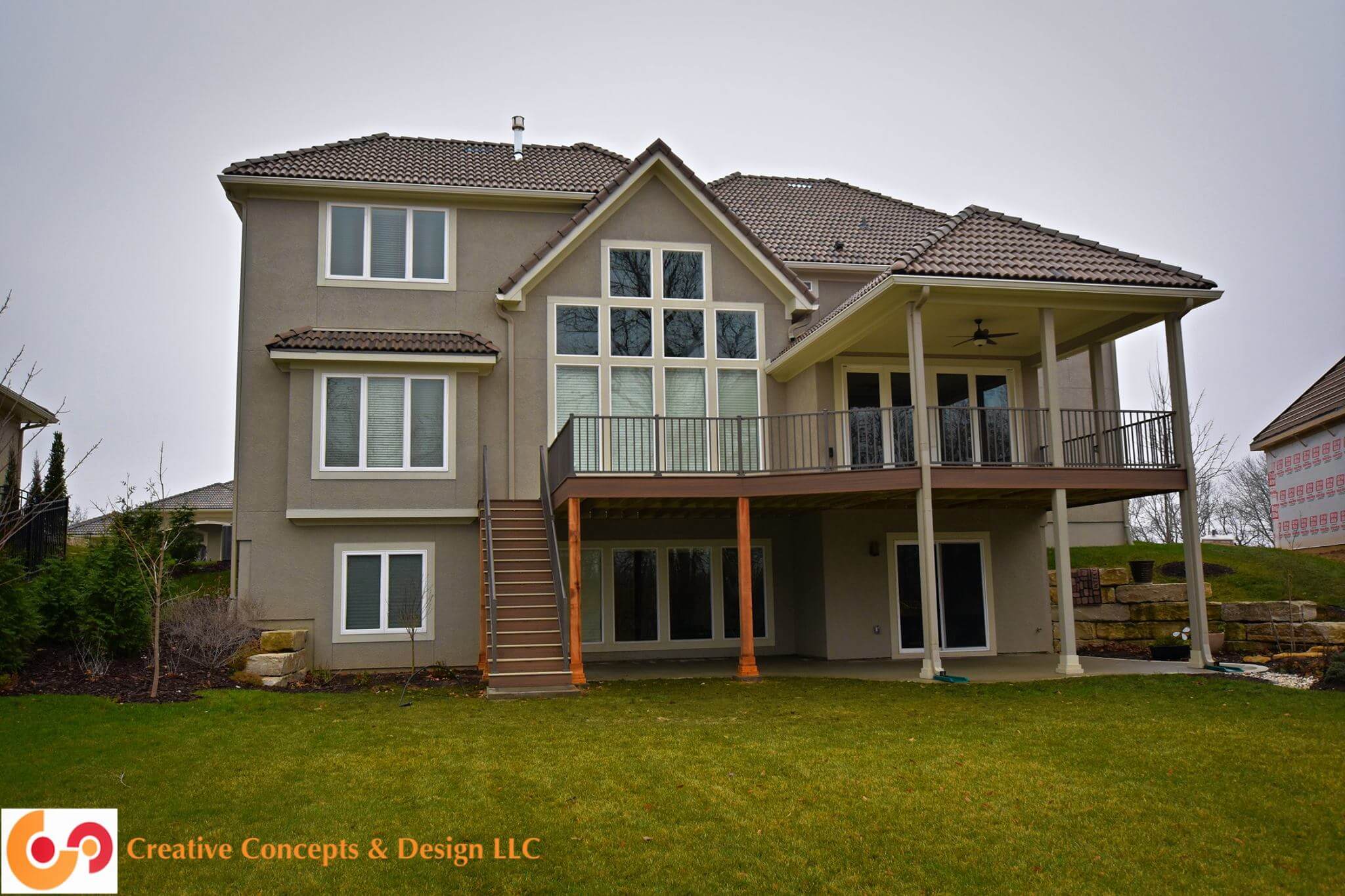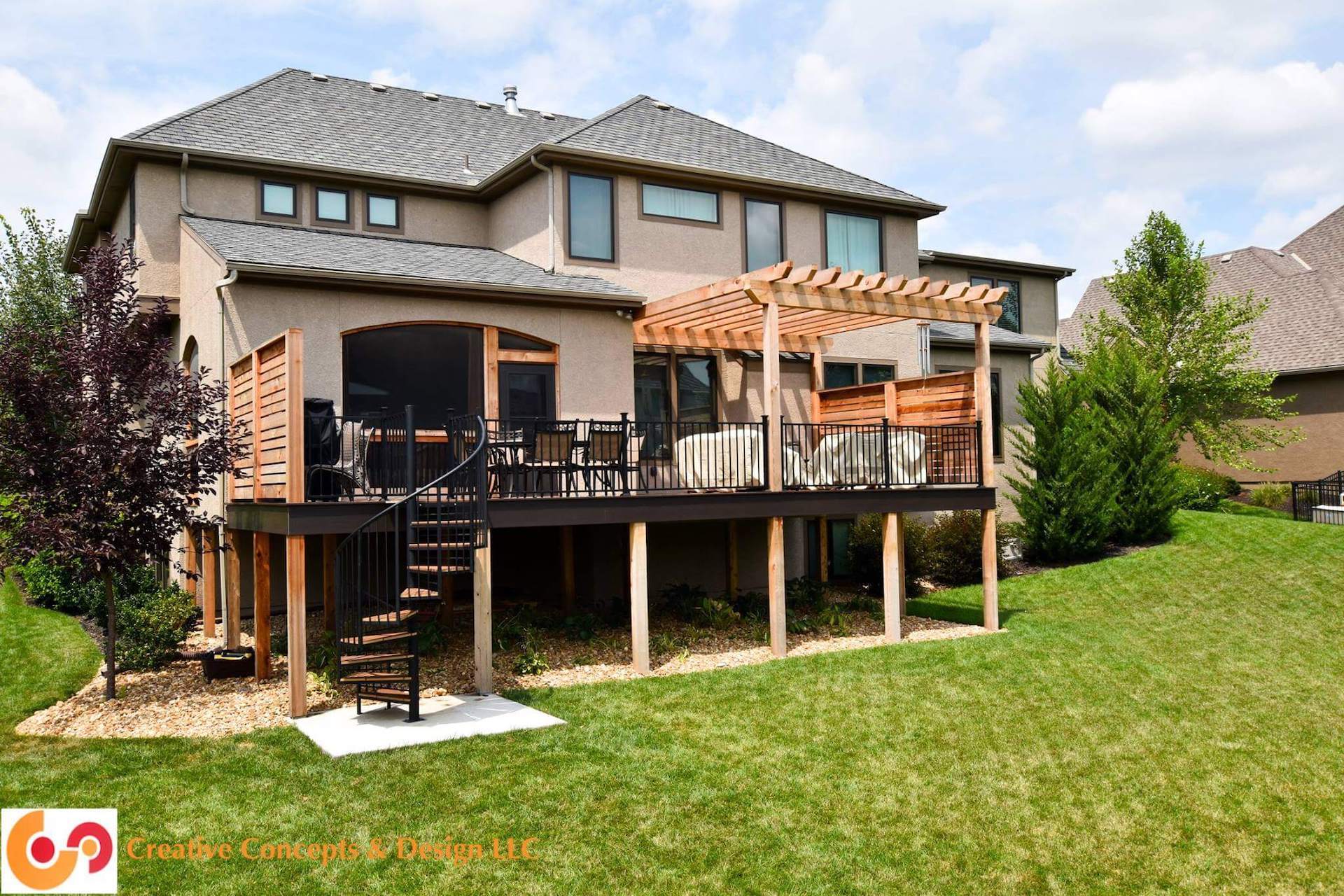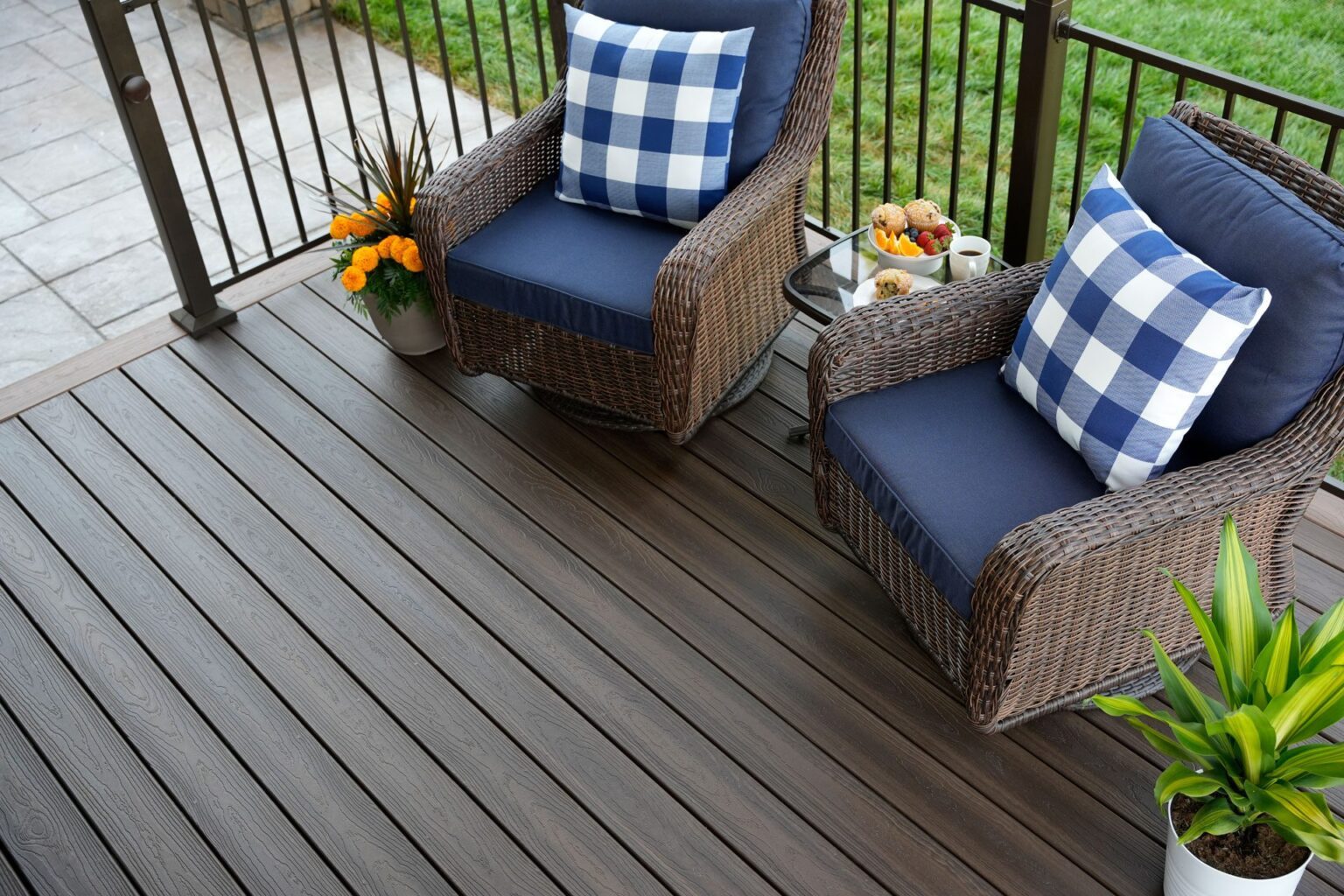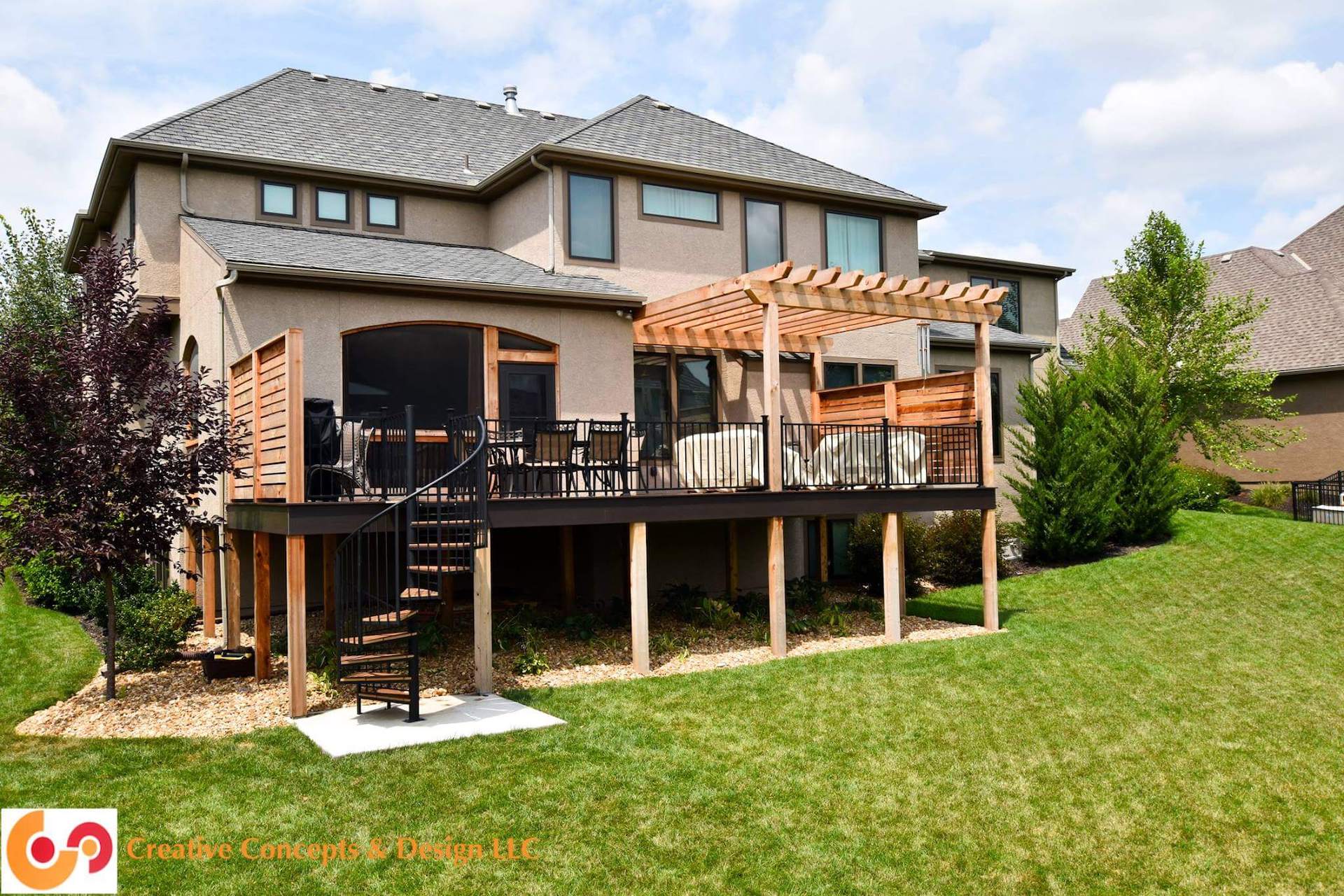So you’ve decided to add a deck to your home (or replace an old one). There’s a lot to consider and many decisions to make. Since we design and build decks every day, we thought we’d share some great information with you to help you make some of those decisions. Whether you plan to build it yourself or hire a professional company, knowing the answers to these questions in advance will help the whole process go more smoothly and quickly. So let’s get started.
1. Determine Your Deck Budget
First things first. While it’s never the fun part, you must define your budget before doing anything else. Have an idea of a comfortable budget+/- 20%. What this does is give me or the architect parameters so we don’t design something unreasonable. Budget can be a touchy subject and many clients are uncomfortable disclosing, however if you are dealing with an ethical company you will actually be better served knowing a rough budget. If you’re still considering which type of decking material to use, read more about it here: What’s the Best Material to Build a Deck?
Here are some general numbers to help you get started. To enter the market for a capped composite deck and metal handrail is $75.00 per sq. ft for a flat surface and $350.00 per step. Obviously finishes play a huge factor in your bottom line but those numbers will get you into what we consider a quality product. If you are also considering hardscape or a full backyard makeover, it’s good to know retaining walls start at $50.00 per face foot, paver patios $30.00 per foot, broom-finished concrete is $10.00 per sq. ft, and stamped colored concrete retails at $20.00 per sq. ft.
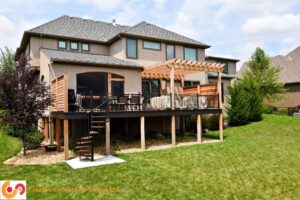
A roof addition starts around $30,000 by the time the architectural engineering fees are included. If a roof addition puts you over budget, a heavy timber pergola is a great way to create a space for about 1/3 of the cost of a roof.
2. ROI – How Long Do You Plan on Living in the Home?
This may sound like a silly question, however, knowing this will help you capitalize on maximizing your ROI. If you are moving within 5-7 years your best ROI will be creating the space for the least amount of money. If it is a 15-30 year home, your selections, and how well you enjoy the space is your ROI.
3. How Will You Use the Space on Your Deck?
 How many people do you plan to accommodate and how do you intend on staging the space? When a designer or architect asks this question, you know you have a good one! This is super critical to providing the client with a well-executed design that is functional. I meet with countless clients that have a super cool design but it’s not functional because the space allocation is not correct.
How many people do you plan to accommodate and how do you intend on staging the space? When a designer or architect asks this question, you know you have a good one! This is super critical to providing the client with a well-executed design that is functional. I meet with countless clients that have a super cool design but it’s not functional because the space allocation is not correct.
Remember, you need space for the furnishings/grill/etc. but also space to allow for traffic flow. For example: a table for 4 needs a minimum of a 10’x10′ deck.
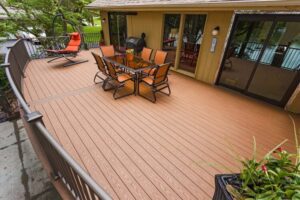 A table for 6 needs a 12’x12′ space. A table for 6 with a grill will need not only enough room for the table and grill but also room for egress.
A table for 6 needs a 12’x12′ space. A table for 6 with a grill will need not only enough room for the table and grill but also room for egress.
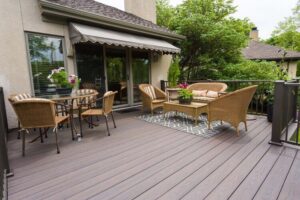 If you plan to have a couch, chairs and a table, you will need even more space.
If you plan to have a couch, chairs and a table, you will need even more space.
You definitely don’t want to spend all that money and then feel cramped when using the space the way you envisioned.
4. Have Pictures of Decks for Inspiration
The last thing you want to do is be a moving target with an architect who’s charging by the hour to provide you with a design. If you can get some inspiration off of HOUZZ, Google, or Pinterest, you will not only save yourself time but also a bunch of money. Print the pictures off, circle the elements you like, and present them during the meeting. You will immediately get your vision across and now have a good foundation to build from. The absolute most costly thing to say is “Make me something beautiful and don’t let budget dictate design.” We have no idea what your idea of beauty is.
5. Match the Deck Quality with the Inside of the Home
You don’t want to overdo or underdo the finish quality. If you live in a modest house, you don’t want to create an outdoor space that rivals the level of your home. Accordingly, if you live in an expensive neighborhood, you don’t want your deck to be so small it looks like an afterthought. Your best ROI will be a seamless level of quality from the inside to the outside.
6. Know When an Architect Is Needed

If you have a roof, pool, six-figure project, or full-blown backyard makeover taking place, an architect is worth their weight in gold. The more pieces you have to the puzzle, the more value they will bring. You don’t want your backyard to look like a hodgepodge of one-off projects that don’t bend visually or flow both aesthetically and physically. An architect will make sure scale, style, and flow create a balanced and beautiful backyard oasis.
7. Know Your Cost Vs. Value
Decks are a good choice if you are looking to raise the value and appeal of your home. Decks consistently rank, year after year, in the top 10 improvements that offer the best return on investment with a 63% (composite) to 66% (wood) cost recovery. It’s good news when any major investment pays you back when you sell, and decks are one of the best for ROI. Just keep in mind that the materials you choose and the customizations you require will affect your ROI.
